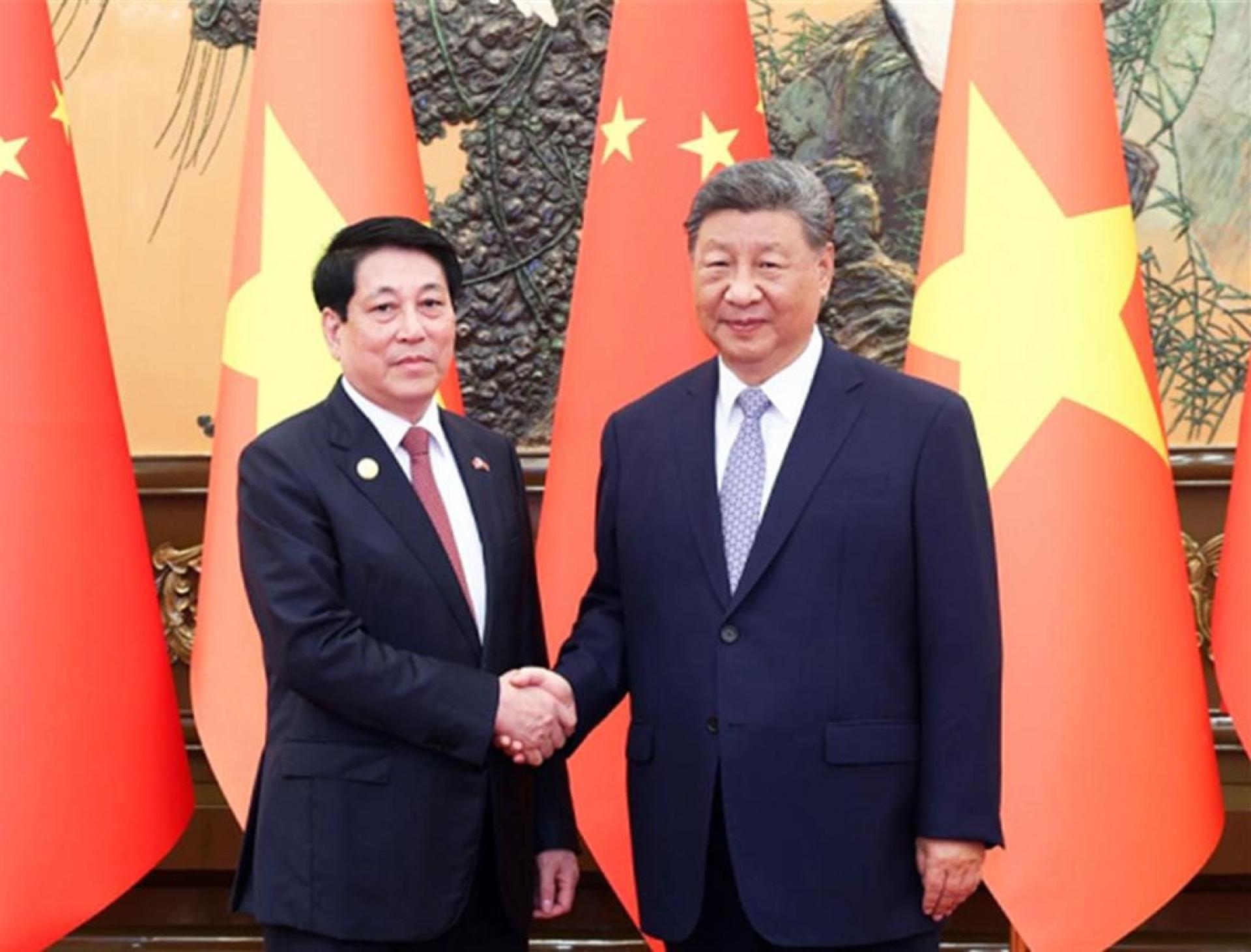At a grand military parade held in Hanoi this September, dozens of young Vietnamese women queued for hours just to catch a glimpse of the “super handsome” Chinese soldiers in uniform—a scene that would have been almost unimaginable in the past. As the US-China trade rivalry intensifies, the Vietnamese government has seized the opportunity to push forward high-speed rail and special economic zone initiatives along the Chinese border, leading to an unprecedented closeness in bilateral relations.
A few years ago, Vietnamese society was still generally wary of this powerful neighbor with whom it has fought multiple wars in history, and any development projects involving China often sparked street protests. Now, the atmosphere has gradually relaxed. According to a study by Singapore’s ISEAS–Yusof Ishak Institute, while 75% of Vietnamese still prefer cooperation with the US, the proportion choosing China as a strategic partner is rising faster than in any other Southeast Asian country.
Social media has played a crucial role in this shift, particularly TikTok, which has 67 million users in Vietnam. When users search for the word “China” on the platform, most of the results are videos showcasing the cityscapes and dancing soldiers of China, and the comment sections are full of admiration for China’s fast development and military orderliness. Even when searching for topics related to the South China Sea dispute, videos unrelated to China often appear, indicating that the algorithm is downplaying the two countries’ antagonism.
This September, in celebration of the 80th anniversary of Vietnam’s liberation from colonial rule, Hanoi hosted a massive parade where tens of thousands flocked to the streets to witness Chinese soldiers marching side by side with Vietnamese troops. Le Xuan My, a 22-year-old student at Hanoi University, said, “They are so handsome, and their discipline is admirable.” Related clips on TikTok have surpassed 3 million views, with many comments praising the Chinese soldiers’ “flawless marching.”
Although some scholars note that this more “moderate” atmosphere results more from state control over nationalism than from a genuine shift in grassroots sentiment, it is clear that the anti-China waves of anger of the past have become difficult to replicate. In 2018, Vietnam’s government shelved its special economic zone plan due to anti-China protests, but these initiatives have now returned to the table, with state media frequently reporting on new development zones along the China border—almost without protest.
Vietnamese scholar Nguyen Hung analyzes that “economic interests now outweigh nationalist sentiment”; as the US-China tensions escalate, Hanoi seeks balance between reality and ideology. Chinese enterprises have become one of Vietnam’s main sources of investment, and frequent high-level exchanges have ensued: Xi Jinping has visited Vietnam twice, and General Secretary To Lam’s first overseas trip after taking office was to Beijing.
Meanwhile, Google Trends indicates a surge in searches for Chinese dramas and language; in the first quarter of 2025, the number of Vietnamese registering for the Hanyu Shuiping Kaoshi (HSK, Chinese Proficiency Test) was the highest in the world. But even on soil steeped in nationalist feelings, the pro-China trend has its limits. At the parade, 21-year-old university student Nguyen Huy Van laughed and said, “Chinese soldiers look great, but our soldiers are always the best.”
